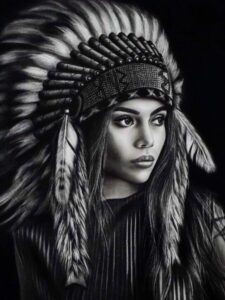A Journey Through Tradition: Unveiling the Culture, Traditions, and Marriage Ceremony of the Chewa Tribe of Africa
Introduction:
In the heart of Africa lies a vibrant tapestry of cultures, each woven with intricate traditions and beliefs that have endured for centuries. Among these, the Chewa tribe stands out for its rich heritage, vibrant ceremonies, and deep-rooted sense of community. Nestled primarily in Malawi, Zambia, and Mozambique, the Chewa people have cultivated a unique way of life that revolves around their cultural practices, including their elaborate marriage ceremonies. In this exploration, we embark on a journey through Chewa culture, uncovering the traditions surrounding marriage and the profound significance it holds within the community.
The Chewa Tribe: Origins and Identity
The Chewa people trace their origins back to the great Bantu migrations that swept across Africa centuries ago. Believed to have migrated from the Congo Basin, the Chewa settled in the fertile lands of present-day Malawi, Zambia, and Mozambique, where they established a cohesive society characterized by strong social bonds and shared cultural practices.
Central to Chewa identity is the concept of ubuntu, a philosophy that emphasizes the interconnectedness of all beings and the importance of community harmony. This communal ethos permeates every aspect of Chewa life, from their social organization to their spiritual beliefs, shaping their worldview and guiding their interactions with one another.
Cultural Traditions and Customs
At the heart of Chewa culture lies a rich tapestry of traditions and customs that define the rhythm of daily life. From birth to death, every milestone is marked by elaborate rituals and ceremonies that reflect the community’s deep-seated reverence for tradition and ancestral wisdom.
One of the most significant cultural practices among the Chewa is the Gule Wamkulu, or “Great Dance,” a masked ritual performed during important festivals and ceremonies. The Gule Wamkulu features elaborately carved masks representing ancestral spirits, each with its own symbolic significance. Through dance, music, and storytelling, participants invoke the spirits of their ancestors, seeking their guidance and protection for the community’s future.
Another important tradition in Chewa culture is the initiation rites that mark the transition from childhood to adulthood. During these rites, young boys and girls undergo a series of tests and rituals designed to prepare them for their roles as responsible members of society. These rites not only impart practical skills and knowledge but also instill a sense of cultural identity and belonging within the younger generation.
The Significance of Marriage in Chewa Society
Marriage holds a central place in Chewa society, serving as a cornerstone of community life and cultural continuity. For the Chewa, marriage is not merely a union between two individuals but a sacred bond that connects families, clans, and generations.
In Chewa culture, marriages are often arranged by families, with careful consideration given to factors such as compatibility, social status, and familial ties. Once a suitable match is found, negotiations begin between the families of the prospective bride and groom, culminating in a series of traditional ceremonies and rituals to formalize the union.
The Marriage Ceremony: A Celebration of Love and Tradition
The Chewa marriage ceremony is a vibrant and joyous occasion that brings together family, friends, and members of the community to celebrate the union of two souls. Rooted in ancient customs and symbolism, the ceremony is a testament to the enduring strength of Chewa culture and the importance of family ties.
The festivities typically begin with a series of pre-wedding rituals, including the payment of bride price, or lobola, by the groom’s family to the bride’s family as a token of appreciation and respect. This gesture symbolizes the groom’s commitment to caring for and providing for his future wife, as well as his readiness to assume the responsibilities of marriage.
As the wedding day approaches, preparations are made for the elaborate ceremony, which usually takes place in the bride’s village or community. The day begins with traditional blessings and prayers offered by elders, followed by the exchange of vows and the sealing of the marriage contract in the presence of witnesses.
Central to the Chewa marriage ceremony is the ritual of kupamba, or “painting,” in which the bride and groom are adorned with elaborate designs and patterns using natural pigments. This symbolic act represents the couple’s transition into married life and their commitment to each other and the community.
Throughout the ceremony, music, dance, and feasting abound, as guests join in the celebration of love and union. Traditional songs and dances are performed to honor the newlyweds and invoke blessings for their future happiness and prosperity.
The Role of Community and Family in Chewa Marriage
In Chewa culture, marriage is not only a union between two individuals but a joining of families and communities. The support and involvement of extended family members play a crucial role in the success of the marriage and the well-being of the couple.
From the earliest stages of courtship to the establishment of a new household, families on both sides come together to offer guidance, support, and assistance to the newlyweds. This collective effort strengthens the bonds between families and ensures the continuity of Chewa traditions and values across generations.
The culture, traditions, and marriage ceremonies of the Chewa tribe offer a fascinating glimpse into a world where ancient customs and modern life intersect. Rooted in a deep reverence for tradition and community, Chewa culture embodies the enduring spirit of African heritage and the resilience of its people. As we journey through the rich tapestry of Chewa culture, we gain a deeper appreciation for the values of unity, harmony, and love that bind us all together as members of the human family.